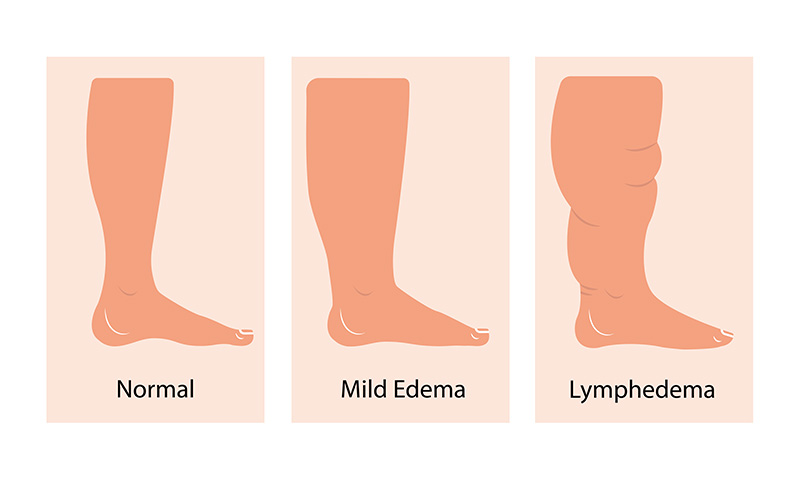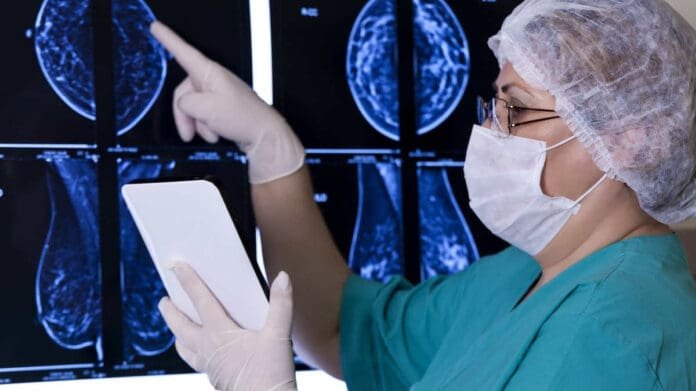Experiments in the UK, France, and the Netherlands show that a tool can tell if a patient will have problems after surgery or radiation treatment. Clinicians have made a machine learning system that can figure out which individuals with breast cancer are more likely to have complications after treatment.
Two million women are identified with the disease every year around the globe. In most countries, it is one of the most widespread cancers in women.
In recent years, survival rates have increased thanks to more people knowing about the disease, faster detection, and more treatment options. However, many patients will still have side effects that are often very bad after treatment.
A group of medical professionals, researchers, and scientists from around the globe have created an artificial intelligence (AI) tool that can predict how likely a patient will have complications after the operation and radiation treatment. People in the UK, France, and the Netherlands are testing the technology, which could help people get more personalized care.
Long-term mortality rates for breast cancer are getting better, which is good news. However, Dr. Tim Rattay, a consultant breast oncologist and associate professor of surgery at the University of Leicester, said that this means some patients have to deal with the side effects of their treatment. Radiation treatment can cause changes to the skin, scars, lymphedema (a severe swelling of the arm), and even harm to the heart.

It is why we’re making a machine-learning instrument that will tell healthcare professionals and patients about the chance of arm swelling that does not go away after breast cancer surgery or radiation therapy. It will help doctors and patients decide on the best radiation treatment choices for each person and make side effects less severe. The artificial intelligence (AI) program was taught to predict lymphedema for a maximum of three years following surgery and radiation treatment by employing information collected from 6,361 breast cancer patients. Patients who are more likely to have arm stiffness may be given different treatments or extra help before and after treatments.
As a collaborator on the project and an associate instructor at the Institute of Applied Sciences and Arts of Western Switzerland in Geneva, Dr. Guido Bologna said, “The finalized best-performing model generates assumptions employing 32 distinct patient and treatment characteristics, such as the probability that patients had radiation therapy, if or not they had a biopsy of a sentinel lymph node under the armpit, and the type of radiotherapy they were given.”
The machine learning algorithm accurately predicted lymphedema nearly eighty-six percent of the time. It also correctly identified people who were unlikely to get it seventy-two percent of the time. Overall, the model was right about what would happen 73.4% of the time.
Rattay said that patients who are more likely to have arm swelling might be given extra support, like wearing an arm support band during medication, which has been demonstrated to decrease arm swelling over time. Clinicians utilize this information to talk to patients about their choices for lymph node radiation despite the fact that the benefit may be pretty close to zero.

Rattay discussed the technology at the European Breast Cancer Symposium in Milan. He called it a “legible Intelligence tool,” which means that it explains why it makes the choices it does.
He also said that such an approach would simplify doctors’ choices and allow them to give their patients facts-based explanations.
The study team wants to include 780 people in a research study called the Pre-Act project. These people will be tracked for two years. The tool is also being worked on to identify other side effects, such as damage to the skin and heart.
Dr. Simon Vincent, who is in charge of study findings, assistance, and activism at Breast Cancer Now, stated that medicines needed to be made better right away. “This interesting research will look into whether artificial intelligence could help individuals who have breast cancer get more personalized support and medical attention that lessens side effects like arm swelling after surgery and radiation treatment.
We need more information before we can decide if the artificial intelligence tool can be used in healthcare facilities. This study is still in its early stages, and we are eager to observe its outcome.
At the meeting, Italian researchers discovered that performing combining positron emission tomography-magnetic resonance imaging (PET-MRI) scans helped doctors see that a breast cancer patient’s tumor had started to spread. It means their bodies might gain an advantage from various kinds of treatment, like chemotherapy or an alternate type of surgery.
Furthermore, scientists from the Netherlands found that young women with breast cancer who received both whole-breast radiotherapy and a low-dose dose of radiation therapy to the area where the tumor was removed did not have any local reproductions after 10 years.




